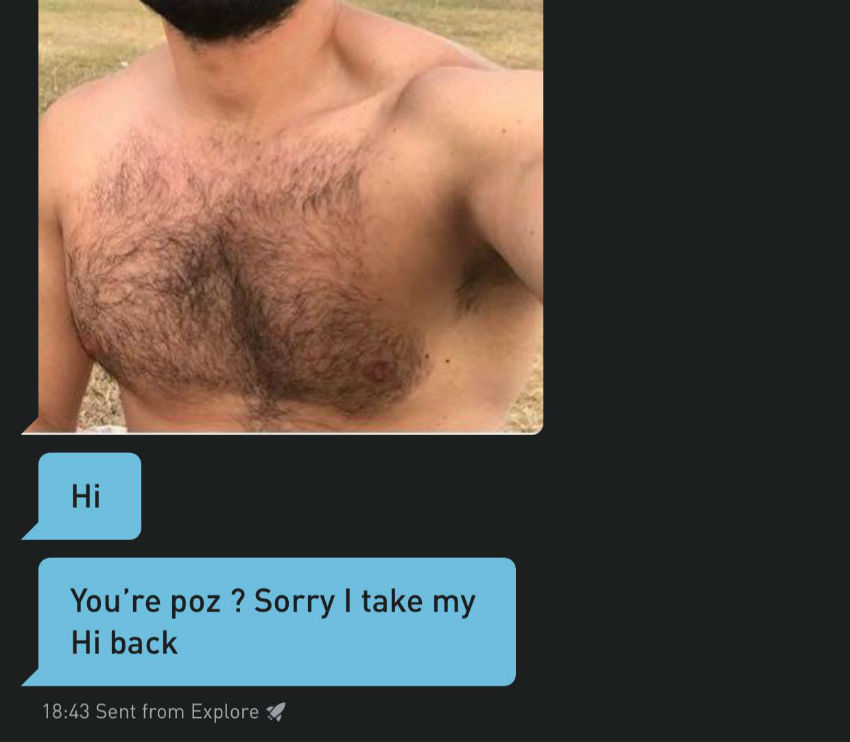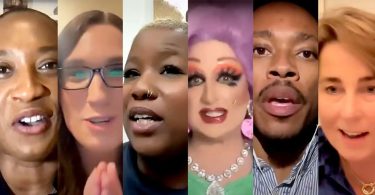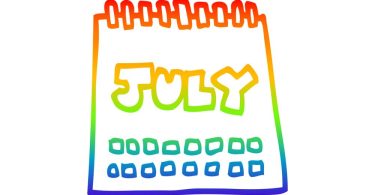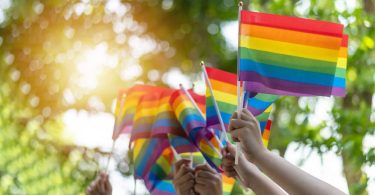A HIV positive user of dating app Grindr has shared the message he received yesterday from another user rejecting him because of his status.
Bang Bang Ladesh is a member of the Manchester chapter of the Sisters of Perpetual Indulgence. He shared a screenshot of the message to his Facebook, where it has been shared dozens of times and prompted many comments.
In the exchange, the man sends a photo of himself to Bang Bang. He follows it up with a simple ‘Hi’. However, he then read Bang Bang’s Grindr profile, which mentions that he is HIV positive.
He then sends a second message: ‘You’re poz? Sorry I take my Hi back.’
(Photo: Facebook)
Speaking to GSN, drag nun Bang Bang Ladesh said, ‘It’s not common to get those messages but it does happen. I normally enter in to dialogue with them.’ However, on this occasion, he found himself blocked.
Instead, he shared a screenshot of the exchange on Facebook.
The Sisters of Perpetual Indulgence are a world-wide group of drag nuns who campaign for LGBTI rights and take part in street performances and protest actions to challenge sexual intolerance. The movement began in San Francisco in the late 1970s. There are now chapters in cities around the world.
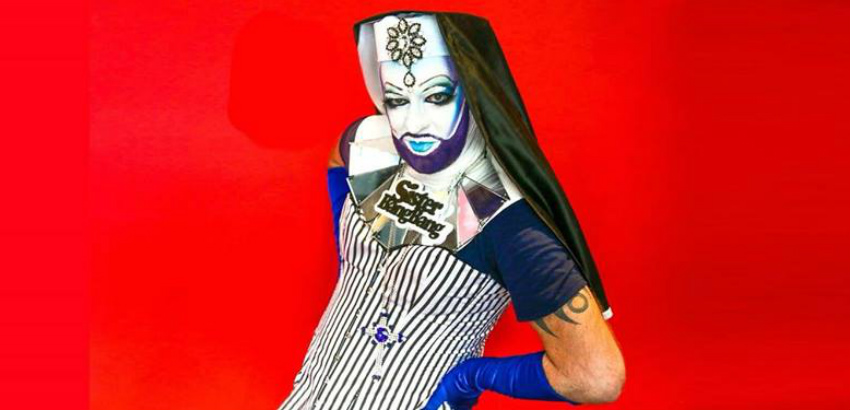
Bang Bang Ladesh (Photo: Facebook)
Bang Bang Ladesh tells GSN he was diagnosed with HIV seven years ago. He is on treatment and has an undetectable viral load.
‘I would never speak to someone like that,’ he said. ‘Why would you? Maybe he got me at the wrong moment, but he blocked me and I can’t answer back so I decided to screen shot it and just put it out there. If I could get one person to see that that’s not acceptable behavior, then good.’
The impact of HIV stigma
He admits that he at first was upset by the message.
‘I did have a cry. I don’t constantly have the energy to stand up and fight. Sometimes you’re home alone with your cats with some cold pizza and then you get a message like that.’
However, his upset turned to determination. It reaffirmed for him the importance of talking about HIV and educating others.
‘Don’t be afraid of revealing your status,’ would be his advice to others. ‘Stand up to the bullies. We stand up to racism, homophobia, biphobia and transphobia – we must fight against HIV stigma and ignorance.
‘Get out there and say you’re HIV positive. It’s not a big deal and I’m going to stop other people making it a big deal.’
‘Cruel and divisive’
Matthew Hodson, the chief executive of NAM says such stigma is ‘cruel’ and unacceptable.
‘Someone who knows their HIV status is likely to be on treatment and, if they’re undetectable, they can’t pass the virus on sexually. You’re much less likely to get HIV from someone who has been tested and felt able to tell you their status than from someone who is HIV positive but doesn’t know it.
‘The stigma that people who disclose their HIV status encounter does nothing to encourage honest conversations about HIV within our communities. It also does nothing to encourage gay men to test.
‘Rejecting someone on the basis of their HIV status isn’t just cruel and divisive, it’s a bad safer-sex strategy. It’s time that we rejected this unacceptable caste system within our communities. It’s time to say, “enough”.’
Three-quarters of HIV positive men have experienced sexual rejection over their status
Ian Howley, Chief Executive of HERO, said such HIV stigma remains common.
‘In 2016, GMFA surveyed 750 gay and bisexual men living with HIV about the stigma they face. 74% said they’ve faced sexual rejection for disclosing their HIV status. 84% of these men said they received stigma on sex and dating apps. So it’s not surprising to me that this is still happening.
‘There are many reasons why people respond to people living with HIV like this; fear, lack of education and some are just pure horrible people who like to feel powerful. There’s not a lot we can do to stop the last ones but we can all do our bit to end the lack of education that surrounds HIV.’
He also talks of the importance of empowering HIV positive men to overcome the stigma they face.
‘There is little we can do to control people being horrible but we can help and support people living with HIV to get to a place where these types of messages do not impact their self-esteem and self-worth. Knowing that these messages you receive is not really about you but about the insecurities of the person who sends them will help you overcome these messages.’
See also
Watch HIV positive guys read mean messages they got on Grindr

